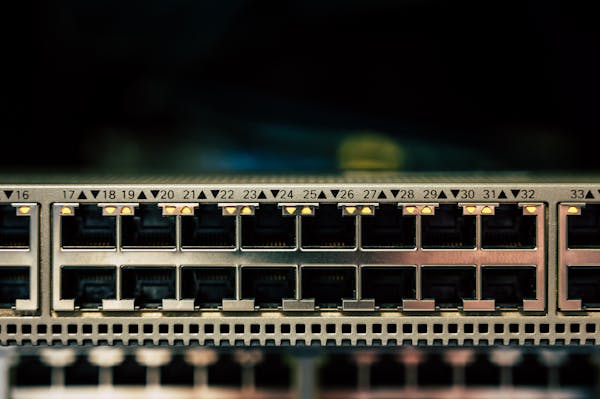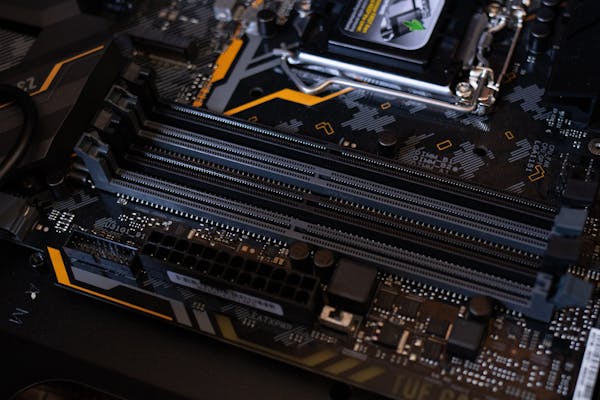Source article: https://heyzine.com/ (4G rotating proxy mobile for sale)

Understanding Mobile 4G Proxies
With the increasing need for online anonymity, mobile 4G proxies have become essential for bypassing geo-restrictions.
What Are 4G Rotating Proxies?
These proxies employ mobile networks to assign dynamic IP addresses to users. Unlike static proxies, they rotate IPs after set intervals, improving security.
How Do They Work?
When connected, the proxy server assigns a mobile IP. These IPs rotate based on time or requests, preventing consistent monitoring.
Benefits of Mobile 4G Proxies
- Increased Security: Dynamic IP rotation masks real IP addresses.
- Accessing Region-Locked Content: Changing IPs allow access to restricted content.
- Lowered Detection Rates: Frequent IP changes avoid detection systems.
Use Cases for Mobile Proxies
- Web Scraping: Rotating IPs ensure continuous data collection.proxies support multiple profiles.
- Competitor Analysis: Changing IPs simulate diverse user locations.
- o Consider}
Before selecting a provider, consider:
- IP Pool Size: A larger pool enhances anonymity.
- IP Change Intervals: Determine if the service has fixed durations.
- Location Options: Access to multiple regions broadens usability.
Potential Challenges
- Pricing Structures: 4G proxies may be pricier compared to other types.
- Network Reliability: Mobile networks may affect consistency.
- Regulatory Concerns: Ensure usage aligns with laws.
Summing Up
Mobile 4G proxies offer unparalleled anonymity, positioning them as essential tools in modern internet usage.
Understanding the Technical Mechanisms of Mobile 4G Proxies
Amidst the landscape of digital security, 4G rotating proxies have become essential components for conducting secure web activities.
What Are 4G Rotating Proxies?
4G rotating proxies leverage mobile networks to provide changing IPs to users. Unlike static proxies, they rotate IPs after set intervals, improving security.
Operational Dynamics
When activated, a dynamic IP from a mobile network is provided. These IPs rotate based on time or requests, preventing consistent monitoring.
Advantages of 4G Rotating Proxies
- Improved Privacy: Dynamic IP rotation masks real IP addresses.
- Bypassing Geo-Restrictions: Changing IPs allow access to restricted content.
- Lowered Detection Rates: Frequent IP changes prevent bans.
Use Cases for Mobile Proxies
- Web Scraping: Rotating IPs ensure continuous data collection.
- Automated Posting: Dynamic proxies reduce account bans.
- Ad Verification: Changing IPs monitor competitor strategies.
Choosing the Right Proxy Service
In choosing a proxy service, consider:
- Diversity of IP Addresses: A larger pool offers better rotation.
- Switching Mechanisms: Determine if the service rotates per request.
- Regional Availability: Access to multiple regions broadens usability.
Limitations to Be Aware Of
- Budget Concerns: 4G proxies may be pricier compared to other types.
- Connection Stability: Mobile networks might experience fluctuations.
- Regulatory Concerns: Ensure usage respects terms of service.
Final Thoughts
4G rotating proxies enhance online privacy, making them invaluable in today’s digital age.
The evolving internet ecosystem, remaining private and get around limitations has become more important than ever. Affiliate marketers, agencies, and SEOs often turn to proxy servers to hide their IP address. Among these, 4G LTE rotating proxy servers have become a top-tier option.
But how do they compare to other alternatives like data center proxies? Let’s explore the differences.
== What is a 4G Rotating Proxy?
A LTE rotating IP proxy is a proxy that uses real SIM cards connected to mobile networks. These proxies rotate IPs at custom timeframes or upon request, mimicking human behavior and reducing the chance of bans or blocks.
== Main Proxy Types
Let’s outline the key proxy types before comparing:
1. **Datacenter Proxies**
– Fast and affordable, but easily flagged.
2. **Residential Proxies**
– Use IPs assigned to real homes. More reliable, but slower and costlier.
3. **4G Mobile Proxies**
– Use real SIMs on LTE networks. Ideal for automation and stealth.
4. **SOCKS5 Proxies**
– Protocol-based, flexible, used for various apps, not just HTTP.
== Comparison Table
| Feature | 4G Rotating Proxies | Datacenter Proxies | Residential Proxies | SOCKS5 Proxies |
|————————|———————|———————|———————|—————-|
| IP Source | Mobile Network (SIM)| Data Centers | Home IPs | Varies |
| Rotation | Yes (Frequent) | Sometimes | Optional | Manual |
| Ban Resistance | High | Low | Medium | Depends |
| Speed | Medium | High | Low-Medium | High |
| Price | High | Low | Medium | Low-Medium |
| Target Use | Social, Ads, Bots | General Scraping | E-commerce, Research| General |
| Block Detection | Low | High | Medium | Medium |
== Technical Advantages of 4G Rotating Proxies
Why choose 4G over anything else?
– **Real Device Trust**: Websites trust mobile IPs more than others due to carrier NAT and wide user pools.
– **Shared Reputation**: IPs are shared across many users, making banning a single user risky.
– **Geo-targeted Mobile Carriers**: Rotate between networks in real U.S. cities or countries.
– **Dynamic Rotation**: Can rotate every few minutes or after each request.
– **Bypasses Captchas**: Mobile IPs are less likely to trigger captchas or challenge verifications.
== Where 4G Proxies Win
Let’s be real— if you’re doing social media automation, nothing works better than a solid 4G proxy.
– Craigslist blocks data center IPs.
– Web scraping? You’ll trigger fewer blocks.
– Ads management across banned zones? Done.
== Where They Fall Short
– **Cost**: They’re premium priced.
– **Speed**: Slower than static datacenter options.
– **Limited Threads**: Some providers limit concurrent usage.
== SOCKS5 vs 4G: Protocol vs Behavior
If you need raw protocol-level control, SOCKS5 is your friend. But they don’t rotate IPs on their own.

| Attribute | 4G Proxy | SOCKS5 Proxy |
|———————|——————–|——————–|
| Protocol Type | HTTP/HTTPS | SOCKS5 (All apps) |
| Rotation | Yes | Manual |
| IP Trust Level | Very High | Medium |
| Use Cases | Social, Ads, Bots | Torrenting, Apps |
== Use Cases Side-by-Side
**4G Rotating Proxies:**
– Social Media Management
– Mobile Ad Verification
– SEO Scraping
– Sneaker Bots / E-com Testing
– Marketplace Automation
**Datacenter Proxies:**
– High-volume scraping (non-sensitive)
– Speed-demanding tasks
– Price-conscious campaigns
**Residential Proxies:**
– E-com price intelligence
– Research tools
– CAPTCHA-heavy targets
**SOCKS5 Proxies:**
– Application-level traffic routing
– Anonymity over torrents
– Bypassing firewalls
== How to Choose the Right One?
Each proxy has a time and place. Here’s how to choose:
– Need speed? Go datacenter.
– Need trust and stealth? Go 4G mobile.
– Need app-level routing? Go SOCKS5.
– Need wide IP pools without rotation? Try residential.
== Future of 4G Rotating Proxies
With AI detection systems growing smarter, only mobile proxies are keeping up. We’re seeing:
– 5G proxy rollouts in testing
– Smarter rotation algorithms
– Integration with automation platforms like Jarvee, NextPost, Puppeteer
== Final Verdict
If you want the closest thing to human, 4G rotating proxies are your best bet. For any campaign that’s running multiple accounts, it’s worth the investment.
== Spintax Conclusion
So, whether you’re an agency scaling campaigns, investing in the right proxy is key to success.
They may feel expensive, but the ROI makes up for it.
https://www.fortinet.com/resources/cyberglossary/proxy-server
https://en.wikipedia.org/wiki/Proxy_server
https://support.microsoft.com/en-us/windows/use-a-proxy-server-in-windows-03096c53-0554-4ffe-b6ab-8b1deee8dae1
https://www.reddit.com/r/explainlikeimfive/comments/1dfgepb/eli5_what_is_a_proxy_server_and_why_would_i_as_an/
https://surfshark.com/blog/proxy-server
